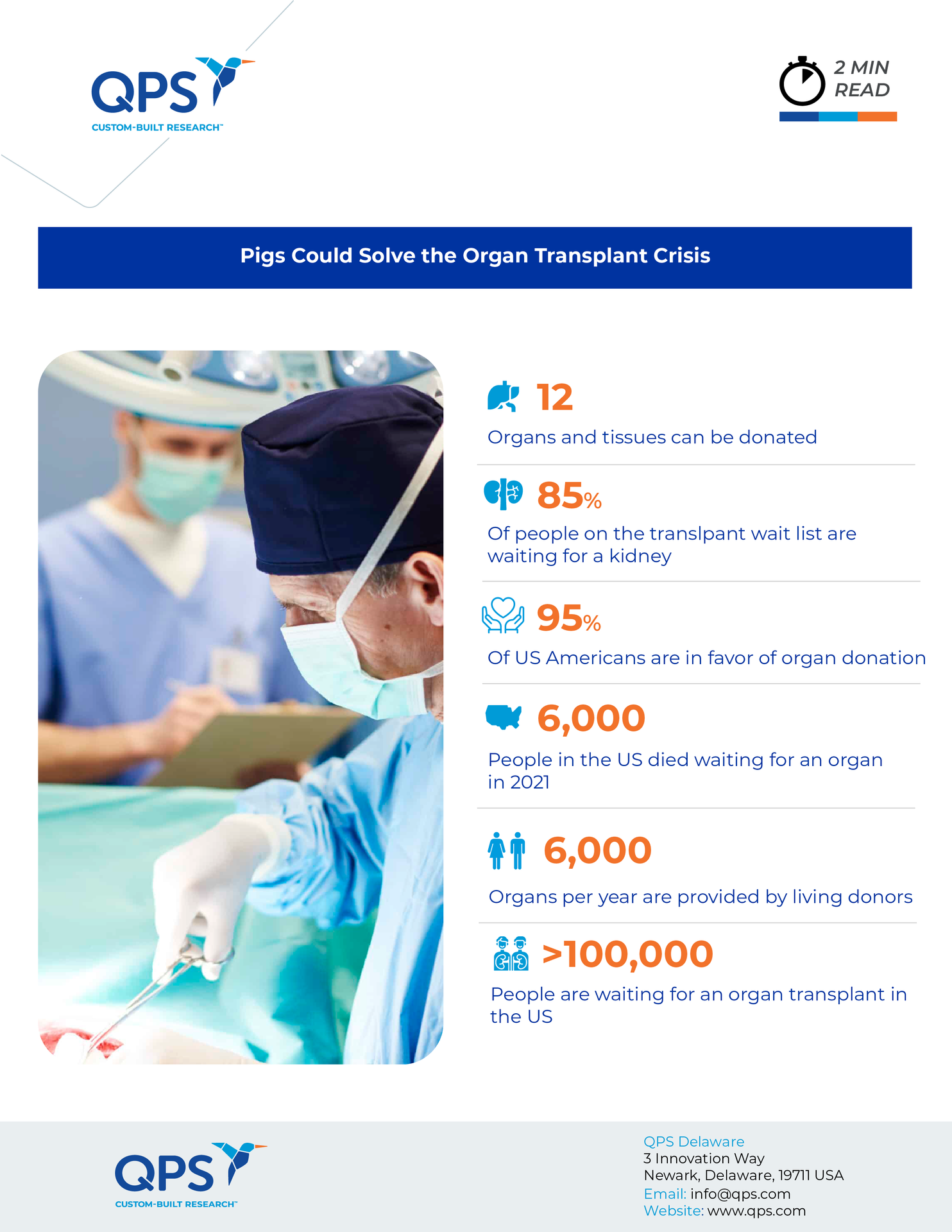2022 held a number of significant breakthroughs in researchers’ ongoing efforts to solve the organ transplant crisis. Many of those breakthroughs were in xenotransplantation, or the use of animal organs in humans, and most of that research has looked specifically at using genetically modified pig organs in humans. As research continues and scientists’ understanding grows, more are considering that pigs could, indeed, solve the organ transplant crisis.
Understanding the Organ Transplant Crisis
The organ transplant crisis is a complex global health problem with implications for both receiving and donating populations. In many countries, the number of available organs falls far short of the number of people awaiting transplants. Inadequate access to organs is largely due to insufficient donor numbers and a disparity between the number of individuals needing transplants and those willing or able to donate; this reduces the pool of potential donors, making it difficult to match patients with sufficient donors. And the limited availability of necessary donors results in long wait times, with many would-be recipients dying while waiting for an available organ.
While the organ transplant crisis has escalated ongoing research into successfully utilizing animal-to-human transplants, the idea is not new. Xenotransplantation research began in earnest in the 1960s, with researchers first testing chimpanzee and baboon organs in humans. But researchers have long believed that another animal may actually represent the best hope of solving the organ transplant crisis.
The Role Pigs Might Play
Pigs, whose size and anatomies are relatively similar to humans, have been considered an important potential organ resource because of their widespread availability. The primary hurdle researchers have faced has been the human immune system, which begins rejecting non-genetically modified non-human organs within minutes. While the 2010 breakthrough CRISPR-Cas9 technology has made it easier for researchers to isolate and modify pig cells in order to develop genetically modified pig organs they hope will be able to survive in the human body, until recently, very few pig organs had been approved for transplants in human subjects.
But several breakthroughs occurred in 2022.
In January, doctors presented David Bennett, a 57-year-old Maryland man with weeks to live, who was not eligible for a human heart transplant, with the option to receive an experimental pig heart transplant. Bennett took that chance, saying, “I know it’s a shot in the dark, but it’s my last choice.”
Bennett survived for another eight weeks after the xenotransplant. After his death, researchers found that the pig heart had been infected with a virus that tests had not detected.
Even so, researchers considered this a significant breakthrough in pig-to-human xenotransplants. “It’s actually beyond my expectation that the patient lived up to two months,” says Luhan Yang, a bioengineer and chief executive of Qihan Biotech in Hangzhou, China. “I think it’s a victory for the field.”
Further breakthroughs came in the spring of 2022, as two independent research groups performed the first known pig-to-human kidney transplants in three people (who, for lack of brain function, were considered legally dead).
These experimental trials found that the pig kidneys were successfully producing urine without being rejected two to three days post-transplant. Similar transplants with legally dead people, this time with pig hearts, were performed in the summer.
The FDA has been slow to approve pig-to-human organ transplants, citing concerns about quality control, animal organ health, and serious public health concerns that range from the risk of infectious and transmissible diseases to viruses that could pass from pig to human. Equally concerning is the unlikely, but not impossible, possibility that animal and human viruses could merge to create new dangerous pathogens.
Despite these potential risks, researchers are hopeful that these 2022 breakthroughs will open more doors to the approval of further small-scale human trial research studies. As Jay Fishman, an infectious-disease specialist at Massachusetts General Hospital in Boston, says, “We owe it to the patient, and we owe it to society.”
QPS is a GLP- and GCP-compliant contract research organization (CRO) delivering the highest grade of discovery, preclinical and clinical drug research development services. Since 1995, it has grown from a tiny bioanalysis shop to a full-service CRO with 1,100+ employees in the U.S., Europe and Asia. Today, QPS offers expanded pharmaceutical contract R&D services with special expertise in neuropharmacology, DMPK, toxicology, bioanalysis, translational medicine and clinical development. An award-winning leader focused on bioanalytics and clinical trials, QPS is known for proven quality standards, technical expertise, a flexible approach to research, client satisfaction and turnkey laboratories and facilities. Through continual enhancements in capacities and resources, QPS stands tall in its commitment to delivering superior quality, skilled performance and trusted service to its valued customers. For more information, visit www.qps.com or email info@qps.com.





